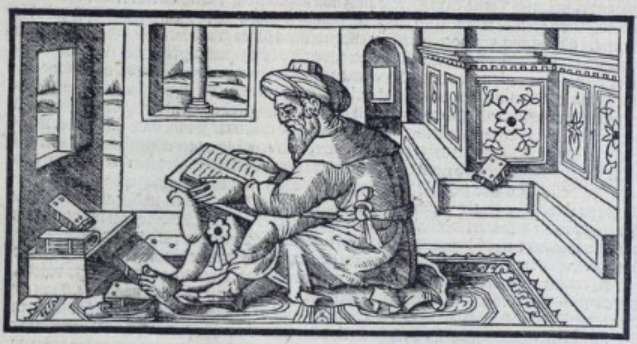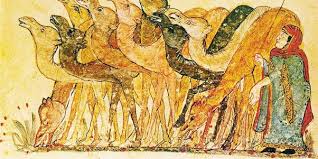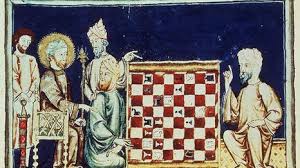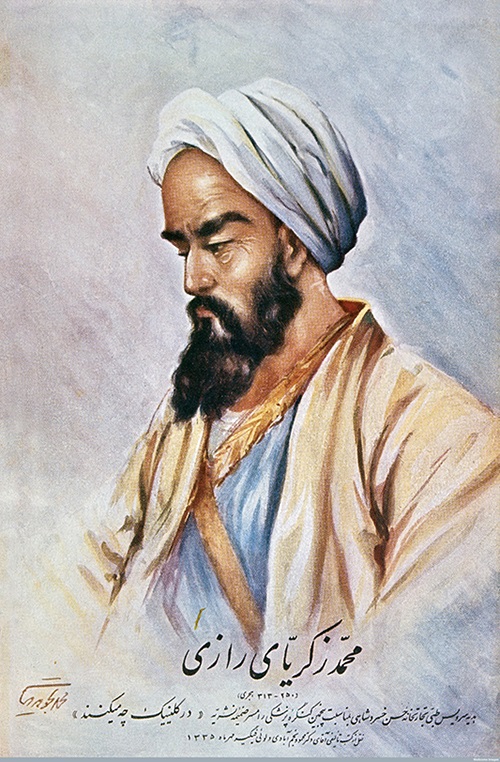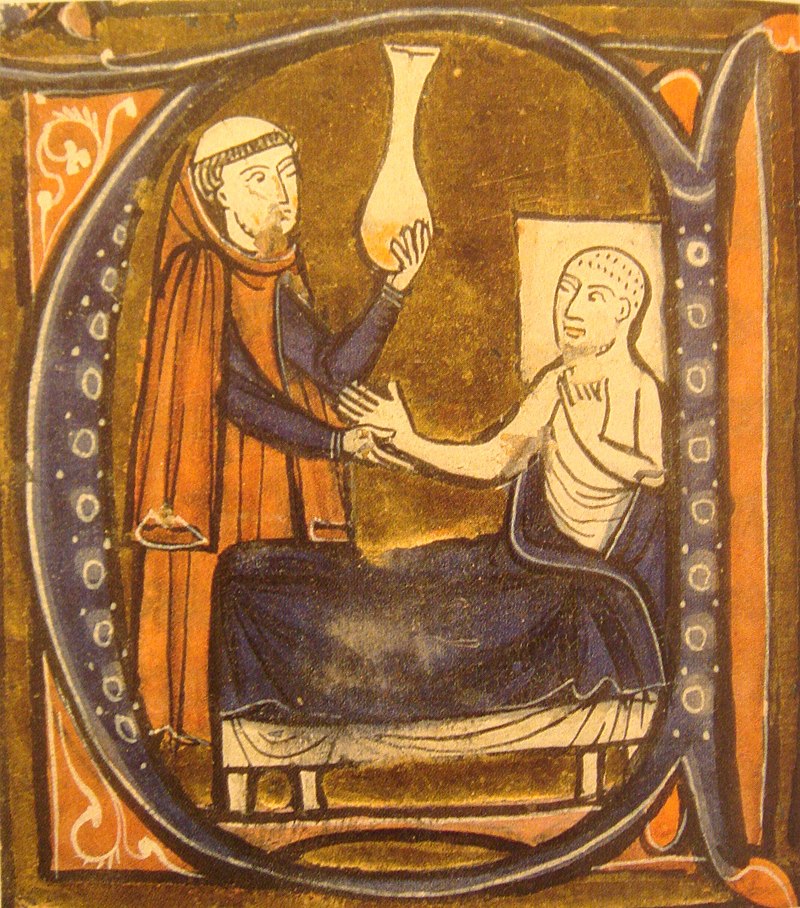It's Saturday, so it's time for another oil history thread. This week: Abu Bakr Muhammad ibn Zakariya al-Razi, the great Persian scientist, doctor and alchemist, who lived between 865 and 925 CE and was the first person to write about refining oil
Al-Razi was an amazing man. He was the first person to write a detailed identification of smallpox and measles, and wrote the first ever book on pediatric medicine. The US National Library of Medicine has a good article on his work here: https://www.nlm.nih.gov/exhibition/islamic_medical/islamic_06.html
His medical textbook, Kitab al-Hawi fi al-tibb (The Comprehensive Book on Medicine) was in its Latin translation one of the most widely used manuals in Medieval Europe. The picture at the top of the thread comes from a 1529 edition printed in Venice, titled Continens Rasis
The book, which ran to 23 volumes in Arabic, covered everything from toothache to haemorrhoids. Al-Razi became famous in Europe under the Latinised version of his name, Rhazes. Another good post on him in the Jewish Virtual Library here: https://www.jewishvirtuallibrary.org/abu-bakr-muhammad-ibn-zakariya-al-razi
He also set up the world's first known psychiatric ward, when he was director of a hospital in Baghdad. He described depression as a "melancholic obsessive-compulsive disorder," and set out ideas for treatment and aftercare. https://ajp.psychiatryonline.org/doi/10.1176/appi.ajp-rj.2018.130905
Born in the Abbasid Caliphate in Rayy, a city in what is now northern Iran, he is said to have turned to medicine after working as a money-changer. I wondered if he made a fortune in finance before turning to philanthropy, but he seems to have worked his way up the medical ranks
The reason I am writing about him today, though, is only tangentially connected to his medical work. In another book, titled intriguingly Kitab al-Asrar (The Book of Secrets), al-Razi was the first person to write about techniques for refining petroleum
The earliest known reference to processing oil, at least the earliest that I know of, comes in what is often described as the oldest surviving history book: Herodotus' Histories, written in about 450-430 BCE
He writes about a region of the Achaemenid Persian empire called Cissia, in what is now southwest Iran near the border with Iraq. In that region there was "a well which yields three distinct products: asphalt, salt, and oil", in @holland_tom's translation. https://www.amazon.com/dp/B00F01IN6M/ref=dp-kindle-redirect?_encoding=UTF8&btkr=1
The mixture was pulled up from the well with wineskins, and then poured into containers to separate out the brine, asphalt and liquid oil. It seems pretty clear that what is being described here is not refining, though: it is just what happens in an oil-water separator
Nearly 2,500 years later, separating out produced water and solids from the oil extracted from a well is still an essential part of the process. Although nowadays it is mostly done without the use of wineskins. Here's Fluor's version, for example: https://www.fluor.com/about-fluor/corporate-information/technologies/gas-oil-water-separation
For true refining, we need to go back to al-Razi and his Book of Secrets. Fortunately, it was recently translated into English, via German, by Gail Marlow Taylor, and it is available on Amazon at the very reasonable price of $4.49 for the Kindle version. https://www.amazon.com/Alchemy-Al-Razi-Translation-Book-Secrets-ebook/dp/B07W8VGZZM/ref=sr_1_1?dchild=1&keywords=al+razi+book+of+secrets&qid=1604180582&s=digital-text&sr=1-1
In the Book of Secrets, al-Razi gives two methods for refining "black naphta" or oil. Both involve heating it after first mixing with either sal ammoniac (ammonium chloride) or white clay, until it "distils like water"
Someone who knows more about organic chemistry than me will be able to explain the significance of those two techniques. I am not sure what you would get if you heated crude with ammonium chloride. Any answers?
There is another puzzle in the text: it says you will know you have achieved the right result when your product "absolutely does not ignite a fire". It's not clear to me how you could get to that point. Again, any explanations are very welcome
Footnote: This excellent 1995 article from Saudi Aramco World suggests al-Razi wrote that the right result is reached when the product is "safe to light", which makes much more sense. Taylor's version may have been garbled. https://archive.aramcoworld.com/issue/199501/the.oil.weapons.htm
Refined petroleum seems to have been employed in the Medieval Arab world for a variety of uses, including medicine, lighting, and weapons. (See last weekend's thread: https://twitter.com/Ed_Crooks/status/1320103191434899457?s=20)
The use of oil in medicine included veterinary medicine. @anasalhajji posted recently about how oil was used to treat skin diseases of camels
But the real reason al-Razi was interested in refined petroleum goes back to his title: 'The Book of Secrets'. As mentioned up-thread, as well as a doctor, research scientist, and mathematician, al-Razi was an alchemist, searching for the secrets of the transmutation of metals
The main use for refined petroleum given by al-Razi is in a complex process, also involving boiled egg whites and more sal ammoniac, that will enable you to transform 20 dirhams (about 60 grams) of copper into silver
I am not sure if the US patent on that process is still available, although I am pretty sure we will see a SPAC invest in it before long
Of course, in the 10th Century, and for many centuries afterwards, there was no clear distinction between chemistry and alchemy. It was all research. King James IV of Scotland, a great patron of medical and scientific research, financed two alchemy workshops in the early 1500s
When you read al-Razi's Book of Secrets, it is strikingly modern in some ways, with its meticulous approach to materials, processes and results. The scientific method is well-developed already
Health and safety is a big focus. There are specific precautions described for handling particular substances such as strong solvents. For procedures involving sulphur and arsenic sulphide, al-Razi tells you to go into the desert or another uninhabited place to protect the public
Some of al-Razi's other achievements included perfecting the distillation of alcohol and discovering sulphuric acid. The sum total of his achievements in chemistry alone is staggering. And most of it in pursuit of an unattainable goal: turning base metals into gold and silver
That was the thing about alchemy: it was a vain, impossible, quest, but the discoveries, techniques and methods learned while pursuing it have shaped the modern world. Including oil refining
The closest analogy I can think of is the spinoffs from the space programme, which include cellphone cameras, memory foam and Dustbusters, although not - contrary to popular belief - Teflon. https://spinoff.nasa.gov/
In amongst everything else, al-Razi also found time to write a book on chess, called Kitāb latīf fī al- Shiṭranj, which means something like 'A Gentle Book on Chess'. "Chess for Dummies", possibly.
In short, al-Razi was one of the most interesting and important figures in the history of science, and is not nearly as widely known as he deserves to be. He doesn't seem to have a single modern biography. Someone needs to rectify that soon! (ENDS)
Just one more image: this is a Medieval European depiction of al-Razi / Rhazes at work. Feels like it is crying out for a caption. (From the thorough Wikipedia entry on al-Razi, which is well worth a look: https://en.wikipedia.org/wiki/Muhammad_ibn_Zakariya_al-Razi)

 Read on Twitter
Read on Twitter